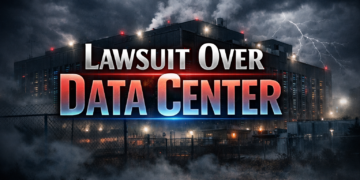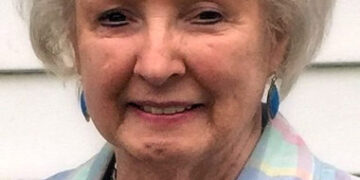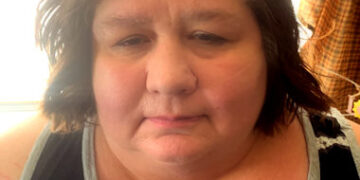MIT researchers found that the average person makes around 35,000 decisions daily. While many decisions are minor, some have lasting effects. That’s why it’s important to know your options, understand the consequences, and compare outcomes to prevent mistakes. The right information leads to confidence and informed decisions, whether buying a car, choosing a new career, or investing. Having more facts has quietly changed how people think and act across communities and industries, allowing them to make safer, smarter choices.
Making Decisions Is Like Gambling
Every decision you make is literally and ironically a gamble, whether choosing which asset to invest in, what career path to take, or even which casino games to play. Today’s market includes several alternative options for Stake fans, with each platform offering a large number of games, provably fair systems, and impressive bonuses. Players can make decisions about which site they use based on the number of slots, live dealer, and provably fair games offered by these alternatives.
Diving deeper into how players make a decision, these reputable platforms also provide users with visible return-to-player (RTP) rates that show how much a game will pay back on average. Games with a 98% RTP will pay back $80 for every $100 spent over time. It’s a type of transparency that helps players choose exactly which game they want to play based on factuality and fairness.
Table games also often publish house edges with clearly outlined probability tables. Beyond that, the provably fair games also rely on blockchain records that allow players to independently check the outcomes. Sites that publish any probability or outcome information transparently earn trust, and the decision-making process is simpler. The same applies to any decision. Treat it like a gamble, and make a decision based on the facts, statistics, and probabilities.
Daily Decisions Become Simpler and Safer
Information drives safer and simpler daily choices. For example, patients often actively aim to understand their treatment options today. Healthcare providers read hospital ratings more closely, spend time learning about different medications, and take control of their well-being through a bit of reading and research. This helps patients follow good medical advice, ask the right questions, and speak to physicians about alternative medications instead.
The smallest bits of information can improve decisions. Reading reviews before hiring a plumber ensures that you solve the problem, while checking weather updates before driving helps you avoid dangerous conditions. Even reading nutrition labels can make shopping safer and more thoughtful. A few moments of research can protect money, time, and health.
Education can also empower you to make better decisions. Anyone with a continuous learning mindset will adapt faster, whether learning through courses or workplace training. Southern Ohio workforce programs have shown how continued training reduces unemployment risks, and people who follow local trends can upgrade their skills early to remain employable while others fail to adapt.
Data Transforms Uncertainty Into Opportunity
Investors use reliable data to make decisions, unlike decades ago when people waited for TV bulletins and newspaper listings. Financial data is now available in seconds to help investors track stock prices and spot patterns faster to act on opportunities before they pass. The great housing flip also allowed home buyers and investors to enter the early stages of the bullish 2025 US buyer’s market using data that showed its strongest performance since 2013.
Another example is how Southern Ohio farmers check the commodity prices and updates before selling their crops, allowing them to time the market right for the best return on investment (ROI). Small business owners also watch inflation reports and loan rates before expanding operations or borrowing money. This kind of access to more information allows businesses and investors to turn risks into a strategy. They don’t guess. They plan with confidence to protect their assets. The results become more stable when decisions are driven by verified numbers instead of instinct.
Transparency Strengthens Communities
Everyone benefits when local organizations and governments share data transparently. Access to accurate updates about public records and health warnings allows residents to stay involved and informed. Many residents follow office updates from the Scioto County sheriff’s department or online weather updates that allow them to make decisions quickly. The alerts often keep families safe, prevent accidents, and improve emergency responses.
Transparency continues to build trust. Residents who easily see how decisions are made will be more likely to participate. Public confidence expands if leaders clearly communicate budgets, safety measures, or infrastructure projects. Well-informed communities feel safer and become united when decisions are made openly.
Businesses Avoid Mistakes Through Research
Having more information in business is beyond helpful. It can save the company from making expensive mistakes. Big data changes business operations and strategies, with businesses relying heavily on trend reports, customer feedback, and local data. A small Portsmouth retailer may notice online comments about slow service or limited parking. They can quickly address the issues to restore customer trust before sales dip. The same business would battle to understand why sales dropped without feedback data.
Even large corporations use local testing before entering a new region or introducing a new product. For example, a fast-food chain may run limited trials for new menu items before rolling them out in Southern Ohio. Automotive companies gather design feedback about safety and comfort before they launch new models. The goal remains the same. Information prevents mistakes and reduces risks, which can be a simple survey or a major data report.
Start Asking Questions
Curiosity drives the best decisions, even in a world where data is abundant. Ask the right questions to prevent mistakes or regrets, whether comparing insurance plans, supporting community projects, or choosing contractors. Asking what the possible outcomes will be or what you’re missing could mean the difference between unpleasant surprises and predictable outcomes.
Curiosity can improve understanding, especially in today’s world of abundant information that often leads to people skimming the data. Instead, it encourages you to double-check sources, think before acting, and compare results. It can become a powerful habit, and it all starts by asking questions, even if there’s an entire manual to highlight the surface-level information. Risks decline when information collides with patience, critical thinking, and just a touch of curiosity. The future becomes less uncertain, and it becomes natural to make decisions faster while considering all the facts.





















































































